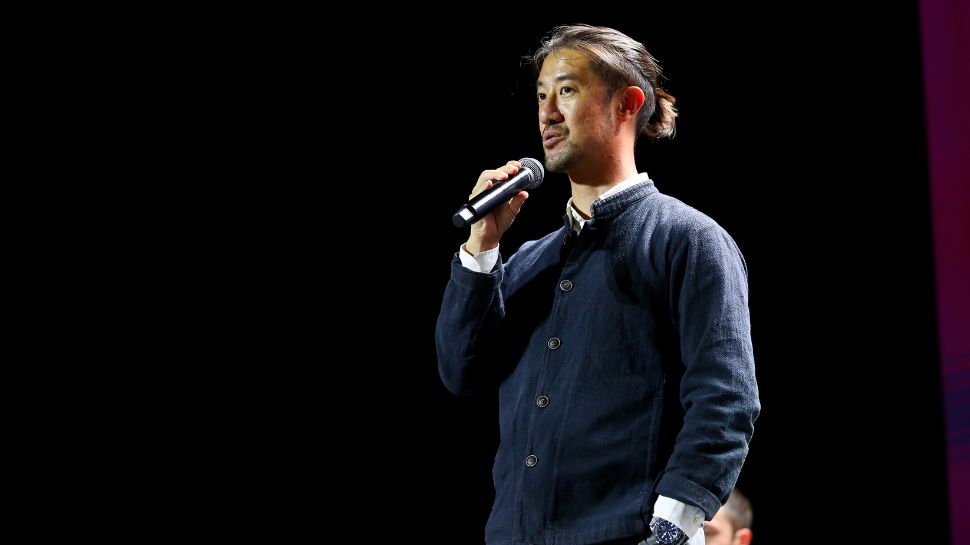Artificial intelligence will lead to a net increase in jobs, this expert claims
Workers need to get on board with artificial intelligence

In the two years that have followed the first public preview launch of ChatGPT, deployment of AI tools has varied from all-in approaches to more cautious investments, but the widespread concern that the technology could replace human workers has remained consistent throughout.
As the technology continues to evolve and businesses adapt accordingly, AI’s role in the workplace is slowly becoming more defined, and you might not have to worry so much about the security of your job.
AI as a creative partner
Several keynotes and panel discussions at this year’s World Congress on Innovation and Technology (WCIT) in Yerevan, Armenia revealed AI’s role as one of a coworker.
A key message conveyed during the event emphasized AI should be viewed as a starting point and a source of inspiration, providing the ideas that humans can refine and improve. The true value of human workers lies in their ability to add emotion, engagement and value-based decision-making, and allowing AI to handle more basic elements of your workload could allow you to increase how much you’re worth to your employer.
Considering AI as a collaborator rather than a competitor is becoming more popular in various industries, but particularly among creatives where the technology can process vast amounts of data, identify patterns and generate prototypes that can be distilled by actual human workers.
The balance between human and machine is especially important in fields where human emotions play a critical role. Whether it’s in marketing, customer service or leadership, the ability to connect with others on an emotional level is a uniquely human trait that tech giants will never truly replicate, as much as they try – and try, they do.
Although countless studies have already revealed that businesses lack the right data foundation to fully benefit from artificial intelligence, it does promise to assist with decision-making at the management level.
Are you a pro? Subscribe to our newsletter
Sign up to the TechRadar Pro newsletter to get all the top news, opinion, features and guidance your business needs to succeed!
AI has already proven instrumental in surfacing information and data that has led to decisions being made about medical treatment, and while the final decision must rest with the doctor who will consider other factors like a patient’s emotional state, personal history and other context, there are clear time-saving benefits to be had.
In business settings, AI has been proven to optimize processes and indicate strategic direction to allow leaders to make better-informed decisions that align with their company’s goals and values. However, there’s still work to do to be able to better use unstructured data, which is typically less text-heavy.
AI and job creation
Despite fears that AI will lead to widespread job displacement, it’s playing out that the opposite could be the case. Besides adding new roles in the underlying model development and the integration of AI tools and agents within companies, artificial intelligence is also promising to plug the gap between existing talent shortages, allowing less-skilled workers to carry out roles that they might not have been able to achieve by using the technology as a colleague.
Speaking about the role of AI and robotics in the labor market and the aging demographic of many developed countries, Nvidia VP of Omniverse and Simulation Technology Rev Lebaredian noted, “There’s plenty of jobs for robots, there’s already unfilled jobs that we need to put the robots on. We don’t have to worry so much about them taking away other jobs.”
With its promise to speed up routine and repetitive tasks, generative AI in particular can free up time for human workers to focus on more complex and creative endeavors. This can deliver efficiency boosts, but can also improve the quality of work being produced because workers have more time to produce meaningful output.
To the tune of this article, Tak Lo, an expert in artificial intelligence, machine learning and robotics, envisions artificial intelligence ultimately leading to “net job creation [and] new job creation” as well as forcing us to “question our skills” as demands shift.
What could be next?
In spite of worker apprehension over the security of their jobs, experts are calling for humans to foster a more symbiotic relationship with artificial intelligence.
Envisioned as the future of work, such a relationship would offer new opportunities for a broader range of workers, leading to greater potential for company growth as well as the creation of new and additional roles.
Much like large shifts in the past, such as the Industrial Revolution, the most likely outcome of the AI era will be a large-scale job shift rather than the elimination of human workers altogether.
With several years’ experience freelancing in tech and automotive circles, Craig’s specific interests lie in technology that is designed to better our lives, including AI and ML, productivity aids, and smart fitness. He is also passionate about cars and the decarbonisation of personal transportation. As an avid bargain-hunter, you can be sure that any deal Craig finds is top value!
